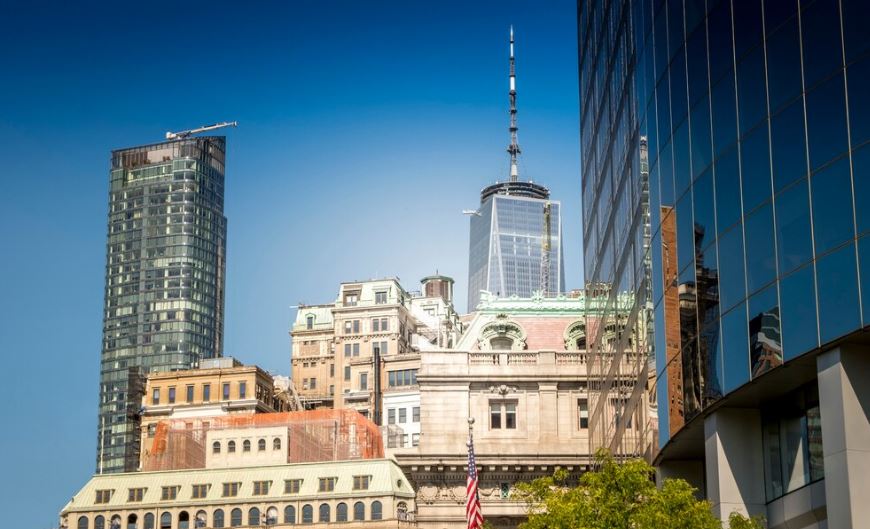Powerhouse startups and a dense cluster of multinational headquarters are the main drivers of London’s remarkably diverse business environment. The top 50 businesses in the city are a reflection of both tradition and change, ranging from tech disruptors rewriting digital blueprints to energy conglomerates with century-old roots. Together, these businesses support the UK’s financial and economic legitimacy and contribute to the establishment of international trends in a variety of industries.
| Company Name | Industry | CEO | Founded | Notable Contributions | Link |
|---|---|---|---|---|---|
| Unilever | Consumer Goods | Hein Schumacher | 1929 | Owns 400+ brands incl. Dove, Lipton, Ben & Jerry’s | unilever.com |
| Google UK | Technology | Ruth Porat (Alphabet CFO) | 1998 | AI, Search, Cloud Infrastructure | google.com |
| Microsoft UK | Technology | Clare Barclay | 1975 | Cloud services, AI R&D center in London | microsoft.com |
| HSBC | Financial Services | Noel Quinn | 1865 | One of largest global banks, HQ in Canary Wharf | hsbc.com |
| BP | Energy | Murray Auchincloss | 1909 | Oil, renewables, climate-focused investment | bp.com |
| Shell | Energy | Wael Sawan | 1907 | Renewable integration, oil refining, net-zero initiatives | shell.com |
| GSK | Pharmaceuticals | Emma Walmsley | 2000 | Vaccines, respiratory & oncology therapeutics | gsk.com |
| AstraZeneca | Pharmaceuticals | Pascal Soriot | 1999 | Covid-19 vaccine, AI-driven drug discovery | astrazeneca.com |
| Barclays | Banking | C.S. Venkatakrishnan | 1896 | Retail and investment banking worldwide | barclays.com |
| Diageo | Alcoholic Beverages | Debra Crew | 1997 | Brands include Guinness, Johnnie Walker, Smirnoff | diageo.com |
Many of these companies have their headquarters in the City and Canary Wharf, two of London’s most famous financial districts, where glass skyscrapers reflect drive, tenacity, and creativity. However, they are increasingly spreading into outlying tech districts like Shoreditch and Kings Cross, demonstrating how a company’s future is no longer determined by its location or legacy.
Although many of the businesses on this list are firmly anchored in Britain’s economic history, they are multinational corporations that enjoy widespread respect. In line with broader changes in the industry, companies like BP and Shell, which have historically been a part of the fossil fuel infrastructure, are notably moving toward green energy strategies. They are reorienting their corporate portfolios and their environmental impact by combining wind, hydrogen, and carbon capture projects.

In the meantime, tech firms are spreading their research presence throughout London more and more. The King’s Cross campus of Google has come to represent this change. Its expansive “landscraper” office combines the benefits of Silicon Valley with the strict regulations of the capital. Google is developing AI systems like Gemini with exceptionally high performance and low carbon overhead by working with regional universities and think tanks.
Fintech companies like Wise, Revolut, and Monzo are driving a revolution in the financial industry, which has historically been dominated by names like HSBC, Lloyds Banking Group, and Barclays. These more recent arrivals are defining customer expectations rather than just seeking disruption. Traditional banks, however, continue to be essential to the economy. They remain significant employers, taxpayers, and stabilizing forces in times of macroeconomic uncertainty due to their sheer size and global reach.
With especially creative approaches, GSK and AstraZeneca are at the forefront of the pharmaceutical and healthcare industries. By adopting gene-editing and artificial intelligence technologies, both have significantly accelerated their R&D timelines over the last ten years. Their collaborations, which frequently involve smaller biotech companies or academic institutions, aid in transferring innovative research into scalable treatment pipelines. Their involvement during the pandemic demonstrated how London boardrooms can have an international impact.
The growing importance of information is demonstrated by tech-related businesses such as RELX, a data and analytics conglomerate. RELX, which serves sectors ranging from scientific publishing to law, has subtly emerged as one of Europe’s most significant data providers. It has greatly decreased decision-making latency across its sectors by using machine learning to produce actionable insights.
WPP is a global leader in communications and advertising, employing more than 100,000 people. The group’s headquarters in London serves as a vital hub for its international branding initiatives. Its AI-powered solutions now enable previously unheard-of levels of personalization in content delivery, demonstrating how data-driven tactics are revolutionizing traditional sectors.
Players in the retail and logistics industries like Ocado and Marks & Spencer are also noteworthy. Even foreign grocers are interested in working with Ocado because of its automated warehouse systems, which are based on robotics and artificial intelligence. It keeps growing its technological footprint by licensing its Smart Platform to US businesses like Kroger. Despite its long history, Marks & Spencer is digitizing its business practices due to a younger customer base that is demanding more individualized shopping experiences.
The tech startup scene in London is especially vibrant. Businesses like Huel, the now-famous meal replacement company, and Allplants, which provides subscriptions for plant-based meals, are prime examples of how sustainability and lifestyle can coexist in a profitable way. These businesses frequently start out small but grow quickly by utilizing London’s talent pool as well as international investor networks.
Contextual decision intelligence, which connects seemingly unrelated data points to reveal hidden threats, is another tool being used by data-centric companies like Quantexa and ComplyAdvantage to assist financial institutions in better detecting fraud and mitigating risks.
Employee experience is a competitive advantage for many of these companies from the standpoint of their workforce. In addition to providing skills-based learning, equity incentives, and mental health support, Google, Microsoft, and Salesforce all have remarkably transparent career progression models. These programs are intentional talent strategies influenced by post-pandemic labor expectations, not just benefits.
Regarding sustainability, almost every company in the top 50 list has made a commitment to ESG objectives. The path is obvious, whether it is Shell’s emphasis on green hydrogen or BT Group’s investment in clean data centers. A more knowledgeable and outspoken generation of shareholders and customers are holding corporate executives accountable.
These 50 businesses together reflect more than just the economic power of London. They are funding innovation, changing education pipelines, influencing policy, and redefining what success in the twenty-first century means. From clean energy to smart cities, from fintech innovations to pharmaceutical discoveries, London’s corporate behemoths are constantly constructing the foundations for a society that is quicker, more equitable, and more progressive.
